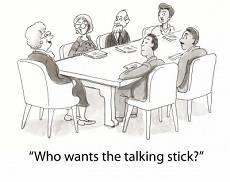August 22, 2013
Communications gap hampering employee engagement and productivity

A stream of surveys published over the past few weeks have indicated a deep rooted sense of unease and lack of job security amongst UK workers. Now yet another poll reveals that far from being keen to discuss career progression opportunities, many employees are reluctant to bring up personal development and career progression with their bosses because they think it will put them at a disadvantage at work. According to the new research from Badenoch & Clark, this growing communications gap between employees and managers could lead to lack of engagement and lower productivity within the workforce. Meanwhile too many employers are investing in the wrong kinds of personal development for their staff. (more…)
































June 9, 2025
Rise of AI gives us a chance to rediscover a world beyond the screen
by Anthony Brown • AI, Comment, Workplace design